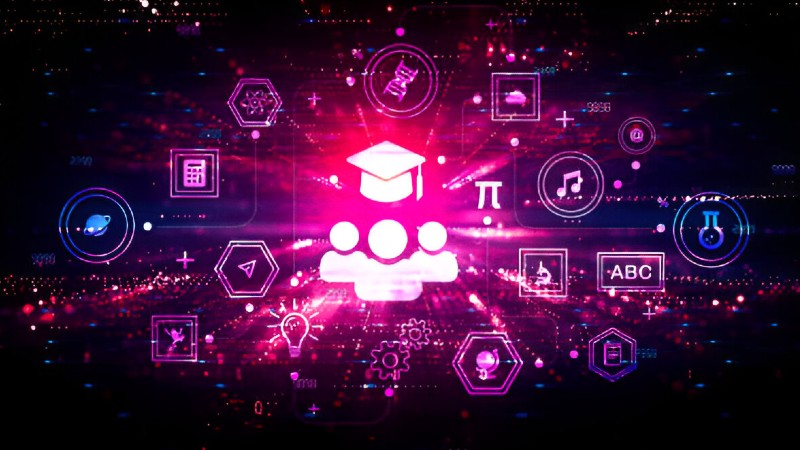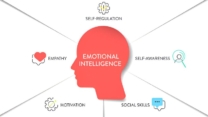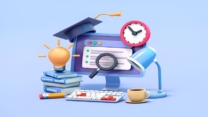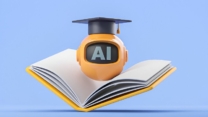
The Future of Personalized Learning: Shaping Education for the Next Generation
As technology advances at an unprecedented pace, education is undergoing a profound transformation. Personalized learning, once considered an aspirational concept, is rapidly becoming a cornerstone of modern education. By tailoring instruction to the individual needs, interests, and abilities of each learner, personalized learning promises to enhance engagement, retention, and overall learning outcomes.
What is Personalized Learning?
Personalized learning refers to an educational approach that adapts teaching methods, content, and pace to the unique needs of each student. Unlike traditional one-size-fits-all models, personalized learning recognizes that learners have different strengths, weaknesses, and learning styles.
Key Components of Personalized Learning
- Individual Learning Paths: Customized curricula that reflect the student’s prior knowledge and learning goals.
- Adaptive Technology: AI-driven tools that adjust content difficulty based on real-time performance.
- Student Agency: Learners take ownership of their education, choosing topics or projects that align with their interests.
- Data-Driven Insights: Analytics to identify learning gaps and suggest interventions before students fall behind.
The Role of AI and Emerging Technologies
Artificial intelligence (AI) is at the heart of personalized learning’s future. From adaptive learning platforms to predictive analytics, AI can process massive amounts of student data to tailor instruction dynamically.
AI-Powered Learning Tools
Examples of AI in personalized learning include:
- Intelligent Tutoring Systems: AI provides instant feedback, practice exercises, and explanations tailored to a student’s current understanding.
- Predictive Analytics: Systems can identify students at risk of falling behind, allowing educators to intervene proactively.
- Content Generation: AI can generate exercises, quizzes, and even reading materials based on a student’s progress and interests.
Statistics Highlighting AI Adoption
| Metric | Value | Source |
|---|---|---|
| Higher education institutions prioritizing AI | 57% (up from 49% previous year) | EDUCAUSE, 2025 |
| Students favoring AI as virtual tutors | 88% | Forbes Technology Council, 2024 |
| AI tools predicting learning outcomes accurately | Up to 85% | Li & Wong, 2023 |
Human-Centric Personalized Learning
While AI offers powerful tools, the future of personalized learning is not purely technological. Human connection remains essential for meaningful learning experiences.
The Educator’s Evolving Role
- Mentorship and Guidance: Educators act as mentors, helping students interpret data and insights provided by AI.
- Emotional Intelligence: Human teachers foster motivation, resilience, and collaboration—areas where AI cannot replace human interaction.
- Curriculum Design: Teachers design adaptive learning paths and interdisciplinary projects that integrate AI tools effectively.
Case Study: Hybrid Personalized Learning
At a mid-sized university in Europe, instructors integrated AI dashboards with project-based learning. Students received personalized content through an AI platform while collaborating on interdisciplinary projects under teacher mentorship. Results:
- 90% of students reported higher engagement.
- 75% showed measurable improvement in learning outcomes.
- Educators spent 30% less time on administrative tasks.
Emerging Trends in Personalized Learning
The landscape of personalized learning is continuously evolving. Several emerging trends point toward the next decade of education.
1. Lifelong and Continuous Learning
Personalized learning will extend beyond K-12 and higher education. Adaptive platforms will support professional development, reskilling, and lifelong learning. AI will recommend courses based on career goals, past performance, and evolving industry needs.
2. Immersive and Experiential Learning
Augmented reality (AR), virtual reality (VR), and simulation-based learning will enable students to experience concepts in real-world contexts. For example:
- Medical students can practice surgeries in VR environments tailored to their skill level.
- History students can explore virtual recreations of historical events with adaptive learning narratives.
3. Microlearning and Modular Content
Learning in small, targeted modules allows students to focus on areas of need without redundant repetition. AI can assemble personalized modules dynamically, optimizing learning efficiency.
4. Collaborative AI-Enhanced Learning
Future personalized learning will not be solitary. AI will facilitate collaborative problem-solving, peer mentoring, and group projects by forming teams based on complementary skills and learning styles.
Challenges and Ethical Considerations
Despite its promise, personalized learning faces challenges that must be addressed to ensure ethical and equitable implementation.
Data Privacy and Security
AI relies on vast amounts of student data. Institutions must implement strong security measures, anonymization techniques, and transparent policies to protect sensitive information.
Algorithmic Bias
AI algorithms can inadvertently reinforce existing biases. Regular auditing, inclusive dataset design, and human oversight are critical to maintain fairness.
Digital Divide
Access to technology is uneven across regions and socio-economic groups. Personalized learning initiatives must include strategies to ensure equitable access to devices, internet connectivity, and digital literacy programs.
A Balanced Approach
The future of personalized learning lies at the intersection of technology, pedagogy, and ethics. Key considerations include:
- Integrating AI thoughtfully: Technology should complement, not replace, human educators.
- Ensuring equitable access: Policies must guarantee all learners benefit from AI-enhanced learning.
- Emphasizing human-centric skills: Emotional intelligence, creativity, and collaboration remain core to education.
- Continuous feedback loops: AI and educators must work together to refine learning paths dynamically.
Example
Imagine a student, Maya, in 2030:
- Maya logs into a personalized learning platform that adjusts her math exercises based on her previous performance.
- AI suggests a VR module for her science project, allowing her to simulate ecological experiments safely at home.
- She collaborates with peers in different time zones through an AI-moderated virtual lab.
- Her teacher reviews AI-generated insights and provides mentorship tailored to her creativity and problem-solving style.
This scenario demonstrates a future where learning is adaptive, engaging, and globally connected.
Conclusion
The future of personalized learning is both exciting and complex. With AI and adaptive technologies, education can become more engaging, efficient, and equitable. However, success depends on balancing technology with human insight, ethical practices, and inclusivity. By integrating AI thoughtfully, fostering teacher mentorship, and designing flexible learning environments, personalized learning can unlock the full potential of every learner, shaping a smarter and more inclusive future for education.
Frequently Asked Questions (FAQs)
What is personalized learning?
Personalized learning is an educational approach that adapts teaching methods, content, and pace to each student’s unique needs, interests, and abilities, aiming to optimize engagement and outcomes.
How is AI used in personalized learning?
AI powers adaptive learning platforms, predictive analytics, and intelligent tutoring systems. It tailors content difficulty, provides real-time feedback, and identifies learning gaps to support individualized learning paths.
Will AI replace teachers in the future?
No. AI complements human educators by handling administrative tasks and offering insights, allowing teachers to focus on mentorship, emotional support, and strategic instruction.
What are the benefits of personalized learning?
- Increased engagement and motivation
- Targeted support for weaker areas
- Enhanced learner autonomy and confidence
- Flexible, lifelong learning opportunities
What challenges exist in implementing personalized learning?
Key challenges include data privacy, algorithmic bias, equitable access to technology, and ensuring educators are trained to integrate AI effectively while maintaining human connection.
How does personalized learning support lifelong learning?
Adaptive technologies allow learners to continue education beyond formal schooling, recommending courses, tracking progress, and providing tailored content for professional development or personal growth.












